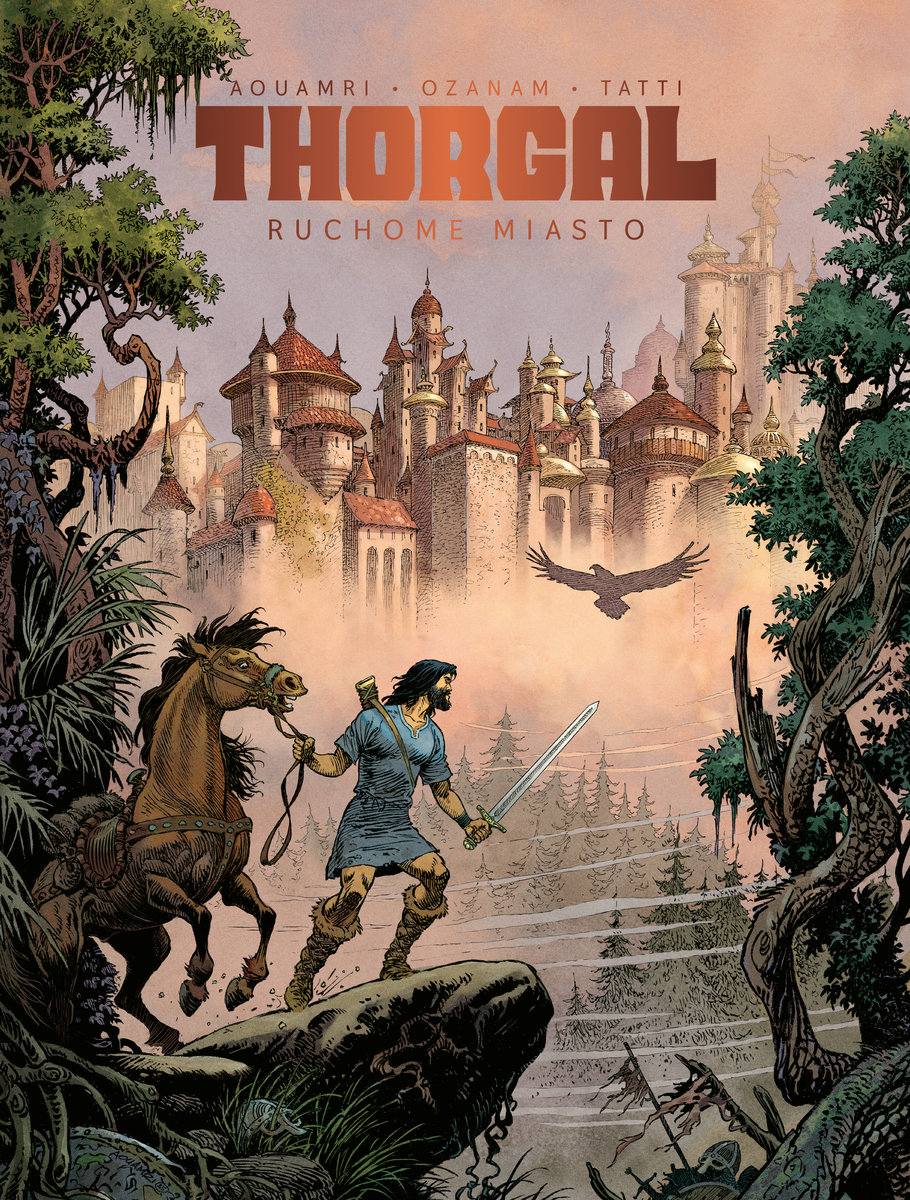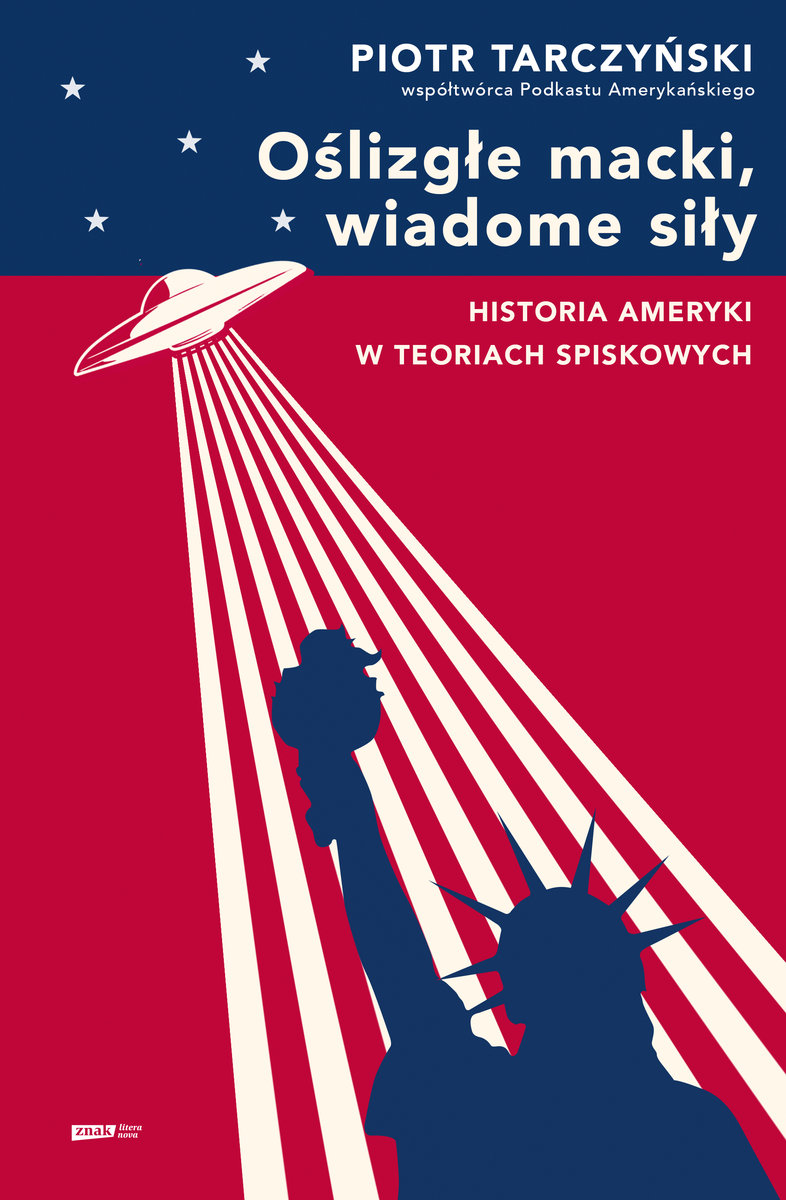Piers Anthony - Macroscope
| Szczegóły | |
|---|---|
| Tytuł | Piers Anthony - Macroscope |
| Rozszerzenie: | |
Piers Anthony - Macroscope PDF - Pobierz:
Pobierz PDF
Piers Anthony - Macroscope - podejrzyj 20 pierwszych stron:
Strona 1
Strona 2
Macroscope
Strona 3
CHAPTER 1
Ivo did not realize at first that he was being followed. A little experimentation verified it, however:
where Ivo went, so did this stranger.
He had seen the man, pale, fleshy and sweaty, in a snack shop, and thought nothing of it until
repetition brought the matter to consciousness.
Now it alarmed him.
Ivo was a slim young man of twenty-five with short black hair, brown eyes and bronzed skin. He
could have merged without particular notice into the populace of almost any large city of the world.
At the moment he was trying valiantly to do so—but the pursuer did not relent.
There was less of this type of thing today than there had been, but Ivo knew that people like himself
stil disappeared mysteriously in certain areas of the nation. So far he had personally experienced
nothing worse than unexplained price increases at particular restaurants and sudden paucities of
accommodations at motels. There had been disapproving frowns, of course, and loud remarks, but
those hardly counted. He had learned to control his fury and even, after a time, to dismiss it.
But actually to be followed—that prompted more than mere annoyance. It brought an unpleasant
sensation to his stomach. Ivo did not regard himself as a brave man, and even one experience of this
nature made him long for the comparatively secure days of the project.
That was a decade gone, though, and there could be no return.
His imagination pictured the stout Caucasian approaching, laying a clammy hand upon his arm, and
saying: " Mister Archer? Please come with me," and showing momentarily the illegal firearm that
translated the feigned politeness into flat command. Then a helpless trip to a secluded spot—perhaps
a rat-infested cellar—where...
Better to challenge the man immediately, here in the street where citizens congregated. To say to him:
"Are you following me, sir?" with a significant emphasis on the "sir." And when the man denied it, to
walk away, temporarily free from molestation. Around the corner, a short hop in a rental car,
somewhere, anywhere, so long as he lost himself quickly.
Ivo entered a drugstore and ducked behind the towering displays of trivia, temporizing while he
covertly watched the man. Would a direct challenge work—or would the bystanders merely stand by,
afraid to get involved or just plain out of sympathy? Outside the glass he saw a harried white woman
with two rambunctious little boys, and after her a Negro teenager in tattered tennis shoes, and after
him the follower dawdling beside the entrance and mopping the sweat from his pallid complexion. A
plainclothes policeman? Unlikely; there would have been none of this furtiveness.
The dark suspicion flowered into certainty as his mind dwelt upon it: once this man laid hands upon
him, his life would never be the same. Life?
Strona 4
Worse; within hours Ivo Archer would vanish from the face of the earth, never to be—
He had to face down this enemy.
"Yes?"
He looked up, startled. A clerk had approached him, no doubt having observed his aimlessness and
become alert for shoplifting. Her query was impatient.
Ivo glanced around guiltily and fixed on the handiest pretext He was beside a rack of sunglasses.
"These."
"Those are feminine glasses," she pointed out.
"Oh. Well, the—you know."
She guided him to the masculine rack and he picked out a pair he didn't need and didn't want. He paid
a price he didn't like and put them on.
Now he had no excuse to remain in the store.
He stepped out—and knew as he did so that he lacked the valor to make his stand. Stubborn he was,
in depth; courageous, no.
The surprisingly solid hand extended to touch his arm. Coarse black hairs sprouted from the center
links of three fingers. "Mr. Archer?" the man inquired. His voice, too, was somewhat coarse, as
though there were chronic phlegm coating the larynx.
Ivo stopped, nervously touching the right earpiece of the sunglasses.
He was furious at himself but not, now, frightened. He did know the difference between reality and
his fantasies. He looked at the man, still mildly repelled by the facial pallor and the faint odor of
perspiration.
Fortyish; clothing informal but of good cut, the footwear expensive and too new. This man was not a
professional shadow—those stiff shoes must be chafing.
"Yes." He tried to affect the tone of a busy person who was bothered by being accosted in such
fashion, but knew he hadn't brought it off. This was plainly no panhandler.
"Please come with me."
It was not in Ivo to be discourteous, even in such a situation; it was a weakness of his. But he had no
intention of accompanying this stranger anywhere. "Who are you?"
Now the man became nervous. "I can't tell you that here." But just as Ivo thought he had the advantage,
those hairy fingers closed upon his forearm. They were cold but not at all flabby. "It's important."
Strona 5
Ivo's nervousness increased. He touched the useless glasses again, looking away. The long street
offered no pretext for distraction: merely twin rows of ordinary Georgia houses, indistinguishable
from Carolina houses or Florida houses, fronted by deteriorating sidewalks and slanted parking
spaces. The meters suggested monstrous matchsticks stood on end, heads up. Would they explode into
fire if the unmitigated glare of the sun continued, or did it require the touch of metal, as of a coin? His
fingers touched a warm disk in his pocket: a penny. Thou shalt not park in the noonday sun...?
"I'm sorry," he said. "Good day." He drew his arm free and took a step forward. He had done it! He
had made the break.
"Swinehood hath no remedy," the stranger whispered.
Ivo turned about and waited, eyes focused on nothing.
"My car—this way," the man said, taking his arm again. This time Ivo accompanied him without
protest.
The car was a rental electric floater, no downtown runabout. The hood was as long and wide as that
of any combustion vehicle: room enough for a ponderous massing of cells. The pressure-curtains
were sleekly angled. This thing, Ivo judged, could probably do a hundred and fifty miles per hour in
the open. His host was definitely not local.
They settled into the front compartment and let the upholstery clamp over chests, abdomens and
thighs. The cab bubble sealed itself and cold air drafted from the floor vents as the man started the
compressor. The vehicle lifted on its cushion of air so smoothly that only the fringe turbulence visible
outside testified to its elevation. It drifted out into traffic, stirring up the dry dust by its propulsion.
There were angry and envious stares from the pedestrians trapped in the wash. Inches above the
pavement and impervious to cracks and pebbles, the car eased into the center lane reserved for
wheelless traffic.
"Where are you taking me?" Ivo inquired as the car threaded through the occasional congestion,
selecting its own route.
"Kennedy."
"Brad's there?"
"No."
"Who are you?"
"Harold Groton. Engineer, Space Construction."
"At Kennedy?"
"No."
Strona 6
Irritated, Ivo let it drop. The key phrase Groton had spoken told Ivo all he really needed to know for
the present, and it was not his style to extract meaningful answers piecemeal.
The last leg of the journey was routine. The car moved down the interstate under self-control at
almost a hundred miles an hour, and the flat expanse of marsh and scrub was monotonous.
Ivo studied his companion discreetly. Groton no longer seemed quite so fleshy or pallid. Somehow it
made a difference that the man had been sent by Brad. Actually, there had been no reason for his
initial aversion.
Well, yes, there had been—but not a valid reason. Once Ivo had been free of prejudice; he had
allowed some to creep into his attitudes.
That was not good. He, of all people, should know better.
"That's what you might call coasting on ninety-five," Ivo remarked, glancing at the speedometer after
an hour's silence.
Groton's heavy head rotated slowly, brow furrowing. "Interstate 95, yes," he said. "But we're not
exactly coasting."
"What I meant was, we're doing ninety-five miles per hour down the Florida coast," Ivo explained,
chiding himself for a puerile attempt at wit.
Groton wasn't stupid; it was the pun that was at fault. He had tried to make a friendly overture,
perhaps in apology for his initial suspicion, and had bungled it.
Coasting on ninety-five, he thought, and winced inwardly. About time he learned that that kind of
complicated punning was not amusing to most people—people past twenty-five or so, anyway. Brad,
of course, would have picked it up and shot it back redoubled—but Brad was scarcely typical, even
in their age group. Ivo suddenly felt extremely young.
"Oh," Groton was saying. "Yes, of course."
Ivo turned away in the awkward silence and brooded upon the landscape again. They were well
below Jacksonville, and the slender palmettos were increasingly evident, though still outmassed by
the southern pine. A sign promoted ST. AUGUSTINE—OLDEST TOWN IN
AMERICA—NEXT EXIT EAST. He wished it were possible to travel for any distance anywhere
without constant commercial importunings, but he knew that industrial and other pressures had forced
an increasingly liberal interpretation of permissible billboard advertising along the interstate system.
Motels, gasoline, batteries, restaurants, points of public interest (as defined, mainly, by private
enterprise)—these had seemed justified originally. But once the precedent had been set, erosion had
been continuous until public interest was assumed to include even hard liquor, soft hallucinogens and
intimate feminine hygiene.
Ahead he spied one of the old-fashioned series signs, clumps of words printed upon each square. He
Strona 7
read it sleepily:
WHAT THE CLOUD DOETH
THE LORD KNOWETH
THE CLOUD KNOWETH NOT
Ivo smiled, wondering how this was going to relate to the public service of smoother shaving.
WHAT THE ARTIST DOETH
THE LORD KNOWETH
KNOWETH THE ARTIST NOT?
He snapped awake. Groton sat stolidly beside him, reading a newspaper. Nothing but brush and
gravel and occasional plastic containers lined the highway here. That had been no series sign, even in
his imagination; it was an excerpt from a poem he knew well, by a poet he had studied well.
Yes, man possessed free-will, unlike the cloud. The artist was responsible for his creation.
Predestination did not apply to the sentient individual.
Yet Ivo Archer was traveling to a place he had never seen, obedient to the subtly relayed directive of
another person. Free-will?
THIS TOO SHALL PASS, a sign said, a real one this time. He sighed, closed his eyes, and gave in to
sleep.
He woke over water: Groton had assumed manual control and was driving across the bridge toward,
presumably, the cape. Though Ivo was not enchanted by the mystery surrounding his summons to this
place, he could not repress a feeling of excitement. If the end of this journey were not the cape, it had
to be—
One of the orbiting space stations?
They were on State route 50. A sign at the far end of the bridge identified Merritt Island; then, shortly,
the Kennedy Space Center Industrial Area. This was a neat layout of city blocks with parklike
landscaping and elegant buildings, the whole reminding him somewhat of a modern university
campus.
"Newest town in America—next exit up," he murmured.
"Close enough," Groton agreed, again mistaking the reference.
"There's a post office here, and a telephone exchange, bank, hospital, sewage conversion plant,
power station, railroad yard, cafeterias, warehouses, office buildings—"
Strona 8
"Any room for the spacecraft?"
"No," Groton said seriously. The man seemed impervious to irony.
"Fifty thousand people work here daily. The vehicles are constructed and assembled elsewhere, and
of course the launch pads are safely removed.
We're just stopping here for the normal red tape—security clearance, physical examination, briefing
and so on. Necessary evils."
"I'm healthy, and I can't be much of a security risk because I was born in Philadelphia, raised
hydroponically, and have no idea what I'm doing here."
"Want to gamble that you're in condition to withstand ten gravities acceleration? That your system can
sustain intermittent free-fall without adverse reaction, such as violent nausea? That you're not allergic
to—"
"I never gamble," Ivo said with sudden certainty.
"As for the security clearance: it isn't what you know now that counts, but how you'll react to what
you learn. Good intentions and partial information can lead to the most extraordinary—"
"I get the point. When's liftoff?"
"Just about six hours from now. The shuttle is already being assembled."
"Assembled! What happened to the regular one?"
Groton ignored the question, this time evidently taking sincere uneasiness for humor.
Four hours and a multitude of tests later they were conducted to the Vehicle Assembly Building, a
structure of appalling volume. "Largest single building in the world, at the time it was built," Groton
said, and Ivo could believe it. "We have two of them now. The Saturn launch vehicles are put
together here—"
"Saturn? I thought the Saturn shot took off three years ago."
Groton paused to look at him, then smiled. "You're thinking of the planet Saturn. You're right; that
was an instrumented economy mission set up in '77. A one-shot bypass of all four gas giants. It's
adjacent to the planet Saturn right now, and will terminate at Neptune in six years. The same goes for
the concurrent Soviet shot, of course."
"So what's with Saturn here?"
"The Saturn VI is the name of our vehicle. Its major components are assembled here in an upright
position, then carried on its mobile launcher to the pad. That enables us to use our facilities
efficiently."
Strona 9
"I see," Ivo said, not seeing, but hesitating to blare out his ignorance again. Why was Groton giving
him this little lecture-tour, instead of taking him directly to the shuttle?
Away from the giant gray and black Assembly Building he saw a peculiar structure with caterpillar
treads. It stood about twenty feet tall and was approximately the size and shape of half a football
field. "What's that?"
"Crawler-transporter. Weighs around six million pounds, travels loaded at a good mile an hour."
"I like that space-age speed." Then, before the man had another chance to miss the humorous intent:
"Where does it crawl? What does it transport?"
"It crawls over the Crawlerway. It transports the Mobile Launcher."
Ivo refused to give up. "Where does the crawlerway expire? What does the mobilauncher launch?"
"The pad. Us."
"Oh."
A short drive beside the pebbled Crawlerway—a handsome dual track resembling the interstate
highway, except that its surface was loose—brought them to the Pad: an irregular octagon over half a
mile across. In its center was an elevated pedestal of steel and concrete with a deep trench running
through it. Perched upon it, squatting over the trench like a man about a private call, was a platform
and tower of metal beams, steadying a rocket three hundred fifty feet tall.
"The Mobile Launcher," Groton said. "With a standard Saturn VI workhorse booster. Rather old
design, but reliable."
"And that booster is—"
"Our shuttle."
Somehow Ivo had visualized a pint-sized rocket, a space-dinghy built for two. He should have known
better.
The launch vehicle was thirty-three feet in diameter at the base and not much smaller at the top. From
a distance the clustered thrust-engines—six of them—appeared diminutive, under the bulk of the
vehicle.
They were like bowl-shaped buttons sewn on—but up close he'd discovered that each was the size of
an igloo. Saturn VI was a monster; Ivo had some inkling of the terrible power leashed within it, since
it had to be enough to hurl the entire mass into space.
"This one's a one-stage booster. Nine million pounds of thrust, and it's the most versatile vehicle in
the program," Groton said as they ascended in the elevator within the launcher-structure. "Used to
take three stages to achieve orbit, but now it's mostly payload. These freighters are usually unmanned,
Strona 10
so we'll be the only passengers aboard this time. Nothing to do but relax and enjoy the ride."
"Who touches the match to it?"
"Ignition is automatic."
"Suppose it fizzles?"
Groton did not reply. The lift stopped, and they traversed the high catwalk leading to the minuscule
entrance-port near the top of the rocket.
Ivo looked down. The concrete launch-pad looked precariously small from this elevation, and the
abutting structures were like so many white dominoes. The great torso of Saturn VI seemed to narrow
at the base, with a tiny skirt at the ground.
Ivo found himself gripping the rail, afraid of the narrow height. Groton did not seem to notice.
"Where are you taking me?" Ivo inquired again as the automatic countdown commenced for takeoff.
"Is Brad doing research at an orbiting station?"
"No."
"The moon?"
"No."
"Then where—?"
"The macroscope."
Of course! That was where Bradley Carpenter would be!
But the realization triggered another surge of nervousness. Brad would never have summoned him to
such a place unless—
Ignition.
Ivo thought the rocket would shake itself apart. He thought his eardrums would implode. He thought
he was a dry bean rattling loose in a tin can... in a tornado.
Gradually, through the blast of sound and vertigo, he became aware of the meaning and practice of
multiple-gravity acceleration. Now his vision was of a medieval torture chamber: tremendous
weights slowly crushing breath and life from the fettered victim. Had he undertaken such stress
voluntarily?
Free-will, where is now thy—
Strona 11
But he knew that it only hit this level for a few seconds. He hoped he never had occasion to endure
the same for minutes. His chest was aching as the load upon it reluctantly decreased; his fight for air
had not been figurative.
Eventually there was free-fall. Then a bone-bruising jar as the lower segment of the rocket was
jettisoned, and a resumption of acceleration, this time of bearable force.
"Hey!" Ivo gasped. "Didn't you say this was a one-stage item? What are we—?"
"I said a one-stage booster. Not the most economical arrangement to achieve escape-velocity, but
reliable. Government wanted to standardize on one model, and this was it. Actually, those discarded
shells orbit for a considerable period; quite a few have become useful workshops in space, and
eventually we'll run them all down and use the metal for another station. That should make a
favorable impression on the taxpayer."
Groton seemed to have no trouble talking against the acceleration.
How long would the journey take? He decided not to inquire. The macroscope station was known to
be five or six light seconds away from Earth—say about a million miles.
Eventually the second drive terminated and permanent free-fall set in.
Groton remained strapped to his couch and fell asleep. Ivo took this as a hint that the remainder of the
flight would be long and tedious, since they had nothing to do but ride. He could not even appreciate
the view; the single port overlooked nothing but emptiness. He tried to think of it as an evocative
withdrawal from Earth, the Ancestral Home, but his imagination failed him this time. He dozed.
He dreamed of childhood: ten years old in the great city of Macon, population three thousand, three
hundred and twenty-three by the latest census, plus a couple thousand blacks. His brother Clifford
was eight and baby Gertrude barely two, that summer of '52; he liked them both, but mostly he played
Cotton Merchant with his friend Charley. They would set up as dealers, buying and selling, tunneling
their warehouses from the rich red clay sides of the deep gully beside the highway. When the big
slow wagons bound for the city passed, he and Charley would jump out and grab away handfuls of the
cotton to store in the warehouses. If the slaves tending the wagons noticed, they never said anything,
so long as the piracy was minimal.
Or picking up hickory nuts for pretend-money or jewelry; or searching for arrowheads, or simply
fishing. It was fun out of doors. Nature was beautiful even in the winter, but this was summer.
Sometimes he would wander through the forest, playing his flute, and the neighbors would hear him
and just shake their heads and smile, and the slaves would nod with the beat.
Ivo woke as they docked at the macroscope station. Actually, there had been several sleeps and two
meals from tubes, but the unstructured time left nothing worth remembering. The free-fall state, too,
had disoriented his perception of the passing hours. His life on Earth seemed at once hours and years
distant, another plane of reality or memory.
Strona 12
Still there was no excitement. He knew that a complex chain of maneuvers had been accomplished,
and that control had been duly shifted from Ground Control to Station Control, possibly with
intermediate Controls between, as though the rocket were the baton in a relay race.
But none of that had been evident to the passengers. Even the docking was tame; for all that was
visible, they might have been stepping from the subway onto the platform back on Earth. Ivo was
disappointed; like any tourist, he thought wryly.
A space officer wearing UN insignia was on hand to check them in and to supervise the unloading of
supplies. The lightness of Ivo's body attested to his off-planet location; the station's rotation provided
"gravity"
via centrifugal force, and this would be the inner ring, with the smallest actual velocity.
There was no physical inspection or other clearance; the over-thorough processes at Kennedy
sufficed, apparently, as well they might.
But where was he supposed to go now?
"Mr. Archer—report to compartment nineteen, starboard, G-norm shell," the officer said abruptly,
making him feel as though he were being inducted into the navy.
"That's it," Groton said. "I'll drop you off—or would you rather find your own way?"
"I would rather find my own way."
Groton looked at him, surprised, but let him go. "G-norm is level eight," he said.
"Section eight. Right." But of course Groton didn't get it.
Ivo dutifully made the traverse, stepping into the lift for the descent to the specified level. The
numbers indicating the shells blinked to life as he passed them, very much in the manner of the floors
of an apartment building. He fancied that he could feel his weight increase, and that his feet were
heavier than his head, specific gravity considered. Did the pull vary that sharply?
Level Eight ignited its bulb, and he hit the "Stasis" button. The panel slid aside to reveal a
compartment even more like a subway stop. Two sets of tracks passed the central shaft, and beside
them stood several four-wheeled carts. He determined from the placement of the sidings that the track
on his right was for travel forward, in relation to his random orientation, and the one on his left was
for motion in the opposite direction. Which was Compartment 19?
He didn't let it worry him. He climbed into a cart and secured himself in the sturdy seat, looking for
the motor controls. There were none; it was an empty husk, as though it had been jettisoned in orbit.
There was a simple mechanical brake set against one wheel.
Ivo shrugged and released the brake. The cart began to move, angling in to intercept the main track,
and he realized that it was gravity-powered. Evidently the track tilted down, or outward, allowing the
Strona 13
carts to roll until braked. Beautiful; what better mode of transportation, in a torus where power was
probably expensive?
He saw the numbers now: 96, 95, 94, each no doubt representing an apartment or office. Those on the
right were marked P, those on his left S.
Port and Starboard, presumably. Starboard being right, he must be heading for the stern.
Of a torus? Exactly where were bow and stern in a hollow doughnut spinning in space? He must be
halfway around it by now, but headed in the proper direction, since the numbers were decreasing.
Except that the levels were level, while the track was tilted. More precisely, the shells were curved
to match the onionlike circumference of the station, while the track had a larger arc. An obtuse arc?
Thus he was headed for the right number—but on the wrong level. Already he was halfway down to
the ninth.
Well, one problem at a time. He had declined Groton's assistance, and now would muddle through in
his own fashion, as was usually the case. One had to live with the liabilities of one's independence.
There was a vertical shaft between numbers seventeen and sixteen, and he guided the cart onto the
siding by judicious manipulation of the brake. The track became elevated here, neatly slowing the
vehicle so that only minimal braking was necessary.
He was on the eleventh shell. It occurred to him that what he had actually done was to drift from a
tight orbit to a looser one, except that he had gained velocity instead of losing it. Or had he? At any
rate, he now weighed a little more than normal, if his estimate could be relied upon.
The shaft was bipart: one side up, the other down. Probably the capsules were looped together,
counterbalancing each other, in the interest of further economy of power. He ascended to the eighth
level, then walked along the interior mall to apartment Nineteen Starboard.
The name on the door-panel was BRADLEY CARPENTER, as he had expected. No one else could
have prepared the particular summons entrusted to Groton. He slid the section aside and stepped in.
A young man turned at the sound: tall, brown of hair and eye, muscularly handsome. Sharp
intelligence animated his features. "Ivo!"
"Brad!" They leaped to embrace each other, punching arms and tousling hair in a fury of
reacquaintance, two subtly similar adolescents roughhousing companionably. Then both sobered into
young adults.
"God, I'm glad you could make it," Brad said, hooking up a hammock and flopping into it. He
indicated another for the guest. "Just seeing you brings back my boyhood."
"How could I help it? You sent your boar oinking after me," Ivo complained cheerfully. It was good
to postpone the serious ramifications for a while. He set up the hammock and got the swing of it.
Strona 14
"All part of the trade, swine." Both laughed.
"But I have one crucially important question—"
"To wit: which way is Stern?"
Ivo nodded. "That is the question."
"I'm surprised at you, den brother. Haven't you learned yet that your stern is behind your stem?"
"My mind is insufficiently pornographic to make that association."
"Take your bow. It's inevitable."
Ivo smiled amiably, realizing that it was his turn to miss a pun of some sort. He would catch on in due
course.
Brad bounced to his feet. "Come on—have to show you the femme.
Business before pleasure."
"Femme?" Ivo followed him into the hall, somewhat bewildered still.
Brad halted him momentarily outside the girl's room. "She has a certified IQ of one fifty-five. I told
her I was one sixty, okay?"
"Is that the proper mentality for liaison?"
"I'm infatuated with her. What do you expect me to do, humble clay that I am?"
Ivo shrugged. "Clay with the feet of a god."
Brad smiled knowingly and touched the bell. In a moment the panel slid aside, inviting entry.
Here the furnishings were distinctively feminine. Frilly curtains decorated the air-conditioning vents,
and the walls were pastel pink.
Brushes and creams lined the surface of the standard desk, and a mirror hung behind it to convert the
whole into something like a vanity.
Here, Ivo thought, was the residence of someone who wanted the entire station to know there was a
Lady present. Someone who wasn't certain of herself, otherwise?
How many women were here aboard the macroscope station? What was their status, whatever their
official capacity? There was something ambivalent about Brad's attitude toward this one.
She appeared from the adjoining compartment She stood a trifle above medium height, slender of
neck, waist, ankle; statuesque of hip and bosom. A starlet type, Ivo thought, embarrassed for Brad's
Strona 15
superficiality. Her hair was shoulder-length and quite red, and her eyes as she looked up were
contrastingly blue.
"Afra, this is Ivo Archer, my old friend from the neighboring project."
Ivo grinned, feeling awkward for no reason he could say. What was this piece, to him?
"Ivo, this is Afra Glynn Summerfield."
She smiled. Sunrise over the marsh.
Brad went on talking, but Ivo did not hear the words. In a single photographic flash the whole of her
had been imprinted upon his ambition.
Afra Glynn Summerfield: prior impressions, prior liaisons—these were nothing. She wore a dress of
slightly archaic flavor, with silvery highlights, and her shoes were white slippers.
The lines of her:
Inward and outward to northward and southward the beach-lines linger and curl.
As a silver-wrought garment that clings to and follows the firm sweet limbs of a girl.
Afra: inward and outward, firm sweet limbs, hair the color of the Georgia sunset. Glynn: silver-
wrought friend of his friend. Summerfield: his fancy lingered and curled.
Afra Glynn Summerfield: at this glance, beloved of Ivo.
He had thought himself practical about romance, with disciplined dreams. He had accepted the fact
that love was not feasible for a person in his unique situation.
Feasibility had been preempted by reality.
"Hey, moonstruck—wake up!" Brad exclaimed cheerfully. "She hits everyone like that, the first time.
Must be that polished-copper hair she flaunts." He turned to Afra. "I'd better get him out of here till he
recovers.
He gets tongue-tied around beautiful girls. See you in an hour, okay?"
She nodded and breathed him a kiss.
Ivo trailed him back into the hall, hardly aware. He was shy with girls, but this was of a different
magnitude. Never before had he been so utterly devastated.
"Come on. The 'scope will settle your stomach."
Somehow they were already on the first level. They donned light pressure-suits and entered what Ivo
Strona 16
took to be an airlock. It was a tall cylinder less than four feet in diameter set pointing toward the
center of the doughnut, but at an angle, and it terminated in a bubblelike ceiling.
Brad touched buttons, and the air about them was drawn off and replaced by a yellowish fog. "Now
stand firm and clench your gloves together, like this," Brad said, demonstrating. "Make sure your
balance is good, and hold your elbows out, but tense, as though you expect to be hanging from them.
Let out half your breath and hold it, and don't panic.
Okay?" His voice was distorted by the sealed helmets.
Ivo obeyed, knowing that his friend never gave irrelevant instructions.
Brad drew out a transparent tube with a filter on one end and poked a tiny sphere into it. He screwed
a springy bulb to the filter-end.
"Pea-shooter," he explained. "I am young at heart." He aimed the tube directly up and squeezed the
bulb sharply.
Ivo saw the streak as the shot went up. Then he was launched into space, somersaulting
uncontrollably. The giant torus of the station careened about him, a faceless mouth, the monster bands
of its segment-junctures reminding him of the vertical cracks in parched, pursed lips.
A hand caught his foot and steadied him. "You didn't listen," Brad said reprovingly, straight-faced
within the bubble-helmet. "I told you to watch your balance." His voice seemed to come from the
depths, now conducted only via the physical contact between them.
"I didn't listen," Ivo agreed ruefully. He looked about and found that they were flying toward the
center of the station: the fifty-foot metallic ball guyed by nylon wires extending to the inner rim of the
torus. He and Brad were still rotating slowly, some of his motion having been imparted to his friend,
but in free-fall this was inconvenient rather than distressing. He had to keep adjusting in order to keep
his gaze on the destination.
"Don't tell me, let me guess," Ivo said when it was clear that Brad was not going to explain. "You
popped a—a bubble, and the atmospheric pressure squirted us out. Since your airgun-spacelock is
aimed at the center—"
"I see you have recovered a wit or two. Actually, I was showing off a little; that isn't exactly the
approved technique. Wastes gas and is dangerous for the inexperienced, to name a couple of
objections. We're supposed to wait for the catapult. Nobody does, of course. Even so, you're wrong
about the aim. The tube is tilted to compensate for angular momentum; otherwise we'd miss the target
every time because of the spin of the torus. Apart from all that, your guess was fair."
"Uh-huh."
"Now watch your footing as we land." Brad removed his hand, nudging the foot just enough to counter
the remaining spin and send Ivo slightly ahead, and he fell upright toward the dark surface of the
artificial planetoid.
Strona 17
He saw now that the guys were actually light chains. They merely anchored the mass in place, so that
arrivals and departures such as theirs did not jog it out of alignment. Each hooked to a traveling roller
magnetically attached, so that the rotation of the doughnut imparted no spin to the ball.
"This is the macroscope proper?" he inquired before remembering that his voice would not carry
through the vacuum, now that contact was gone. Obviously it was the 'scope, painstakingly isolated
from unwanted motions and intrusions. He had no doubt that their approach was being observed, or
that it had been cleared well in advance.
The macroscope was the most expensive, important device ever put into space by man. The project
had been financed and staffed internationally as research in the public interest: meaning that while no
single government had cared to expend such considerable resources on such a farfetched speculation,
none could afford to leave the potential benefits entirely to others.
Compromise had accomplished mighty things. The macroscope was functioning, and each participant
was entitled to a share of its use proportionate to the investment, and a similar weighted share of all
information obtained. That was most of what Ivo knew about it; exactly what hours fell to whom was
classified information. Much of the result was general: details of astronomic research that had the
astronomers gaping. The scope, it seemed, ground out exceeding fine pictures. Much was concealed
from the common man, but the awe this instrument nevertheless inspired was universal.
He thought of it as basically nothing more than a gigantic nose, sniffing out the secrets of the galaxy. It
still daunted him.
He landed at last, almost afraid his momentum would jar the machine out of line. Brad came down
behind him, controlling his spin to land neatly on his feet. Ivo decided he would have to master that
technique; his own touchdown had been awkward.
Brad took his hand so that they could communicate readily. "We'll have to wait for admittance. Could
be several minutes if he's in a taping sequence. Just relax and admire the scenery."
Ivo did. He peeked cautiously toward the sunside, knowing that Sol was much fiercer here in space
than to an observer sheathed in Earth's atmosphere.
A monster rocket floated there, similar to one he remembered.
"What's a Saturn VI doing here? A complete one, I mean. I thought the booster-stage never got out of
orbit."
"Correct. This one's in orbit."
" Earth orbit, mister innocent. This is sun orbit, if I'm not totally confused."
"Oh, it can travel far—if refueled. That's Joseph, our emergency vehicle. Enough power there to blast
us all to safety in a hurry—if ever necessary. Personally, I'd call space safer than tempestuous, seam-
splitting Earth. Joseph is actually the tug that nudged the scope into this orbit. Now he's semiretired;
Strona 18
no point in sending the old gent home empty."
"Must be quite a lot of oomph when you click your flint under his tail.
No gravity—" The thrust, he knew, would not change; but here none of it would he counteracted by
planetary drag, so the net effect had to be a much larger payload or higher velocity.
"To be sure. We've been tinkering with him on the QT. He still uses hydrogen as the working fluid,
but stores it solid. But no ignition—combustion in a chemical engine is only a means, not an end. It is
the velocity of the expelled propellant that counts, you know, rather than the per se heat of the engine,
although—"
"Sorry, Brad. I don't know. If you must get technical—"
"I can make it simple for you, Ivo. I just can't resist bragging a little, because I was the lucky lad who
happened to pick the key out of the scope."
"You're actually getting technology from—"
Brad moved a finger in their old-time code for caution. That implied that the question had awkward
aspects that could only be cleared up more privately, which in turn implied that their present
conversation might be overheard somehow. Perhaps through a pickup in the macroscope housing. And
the implications of that—
Ivo shut up. Cloak and dagger did not thrill him; it brought back the restlessness in his stomach. Too
much had happened in the past few hours.
"We've had the basic theory to adapt a gaseous-core atomic reaction to propulsion for years, but the
thing is fraught with peril. We can mix the working fluid—that's the hydrogen we belch from the tail
of the rocket to make it go—directly with the fissioning uranium in the chamber. That raises the gas to
a temperature that makes possible a specific impulse ten times the best we can do with chemical
combustion. But it's too hot. It melts any containing material we know of. What I discovered was a
heat-shielding technique that—well, Joseph may look ordinary to you, but he's a Saturn VI in outline
only. His engine produces a thrust you'd call over ten gravities—and he can keep it up for almost a
week before he runs out of hydrogen. He never runs out of heat, of course. If you could only
appreciate by what factor that outperforms the best Earth has known before—"
"Brad, I am appreciating with fervent fervor. But I'm still a layman. I never had technical training. I'll
be happy to take your word it can do the job, whatever the job is."
Speech lapsed. Ivo knew that Brad's feelings were not hurt. They had merely taken the dialogue
beyond the danger point—its relevance to the macroscope?—so that it was safe to drop it.
His attention had been on immediate things hitherto, but now he stared beyond the rim of the station,
away from the uncomfortably brilliant sun, and saw the stars. He found to his surprise that they were
familiar.
Strona 19
Ursa Major—the Big Dipper—was evident, with its dip pointing to Ursa Minor. And just who was
Ursa? he always asked himself. That was no lady, that was the wife of a bear! he always replied.
Draco the Dragon curled around the Little Dipper. Following the line the Big Dipper pointed on past
the Pole star, he could travel at multiple-lightspeed all the way to Aquarius, perpetually chasing
Capricornus. The runner was so close, but fated never to catch up. Somehow that saddened Ivo; there
seemed to be a special, personal tragedy in it, though he could not determine why he felt that way.
The light he perceived at this instant had been generated by many of those stars over a century ago, or
even much longer. Perhaps one of those brilliancies dated from the time he, as a lad of fourteen, had
organized a company of some fifty youths like himself, to train with bows and arrows. Thus
"Archer"—so fiercely patriotic, as the clouds of national dissension gathered, signifying the end of
life as he had known it. Yet he might as readily have been named for the flute with which he used to
serenade the young ladies. "Tutor," when he later taught at college, had indeed been corrupted to
"tooter" by the students. Or "Plowman,"
because of the passages he liked to quote from Piers Plowman....
He had been cultured then, polite, affable, dignified, replete with moral refinement. Not quite fifteen,
he had entered Oglethorpe University at Midway, Georgia, parting his fair hair to the side and
brushing it behind the ears. He wore good, but not ostentatious, apparel. Already a hint of a stoop to
the shoulders, but brisk of gait. He had no taste for athletics.
There were fifty students at the college.
Music and books were his dearest companions—but those fair young ladies were never quite
forgotten.
Once a student misunderstood him and denounced him as a liar. He struck that person immediately,
though he was not himself strong. The student drew a knife and stabbed an inch deep into his left side,
but he did not capitulate. Never was he known as a coward, then.
"What do you think of Afra?" Brad asked him.
That name brought him instantly back. What availed past courage, when the present battle was lost?
"You're serious about her?"
"Who wouldn't be? You saw her."
"Brad, she's a hundred and two per cent cauc in the shade!"
"I'll say! Her DAR pedigree goes back to the Saxon conquest."
Ivo smiled dutifully. "The project—"
"The project's over. You know that. We're free citizens now."
"You can't erase the past. If she knew—"
Strona 20
Brad looked at him oddly. "I told her there were several projects, related but discrete. That I was a
washout from the IQ set."
"A washout!"
"What would you call an intelligence quotient of one hundred and sixty, when the target was two
hundred?"
"I see. And where did you tell her I was from?"
"Nothing but the truth, Ivo. That a private foundation gathered together selected stock from every
corner of the sphere and—"
"And bred back to the multiracial ancestor they presumed mankind started from. So I'm Paleolithic."
"Not exactly, Ivo. You see—"
They were interrupted by the lifting of a panel. Admittance was at hand.
The interior was a cramped mass of panels, but there was room for several people if they watched
their elbows. A short tunnel beyond the airlock opened into a roughly spherical compartment. Ivo's
first impression was of machinery; there were dials and levers everywhere, projecting from every
side. He found it hard to orient because there was no gravity here and no visual "up." Wherever he
planted his feet was ground; the slight magnetism that had held him to the outer hull remained
effective.
The technician in charge was already getting into his suit. Brad spoke to him in a foreign language,
received a curt reply, and said: "Ivo Archer—American." The man nodded politely.
"You see, it is all very carefully arranged," Brad said as they waited for the man to complete his suit-
checkout. "Thirty nations have put up the cash for this project, and each is allotted—but you must
know that. We send in precise reports every day."
"This is the American Hour?"
"No. Personnel here don't bother with the official foolishness. This gentleman is not a gentleman—
that is, not a Gentile. He's an Israeli geologist doing work for Indonesia. Their own geologist is busy
on a private project."
"So somebody is paying off a favor?"
"Right. Indonesia will get the results, and the home state will never know the difference."
"How is it we can horn in, then?"
"I preempted the slot for more important work. He understands."










